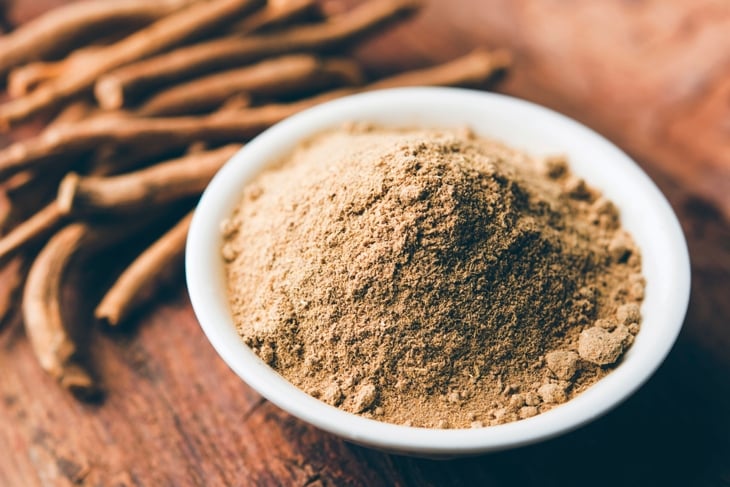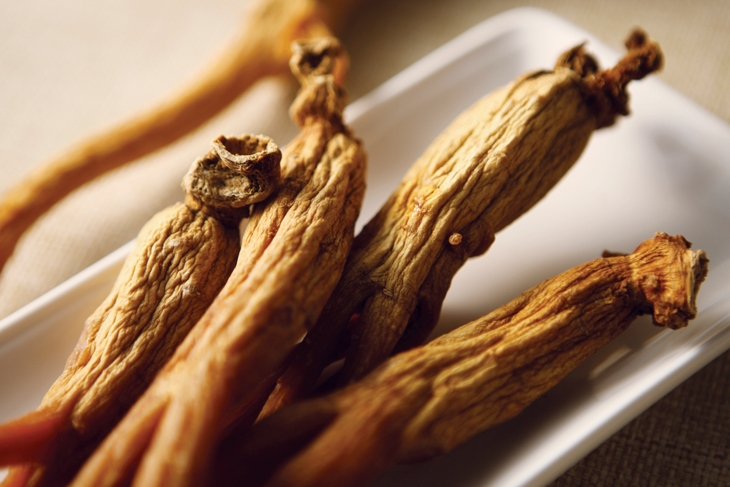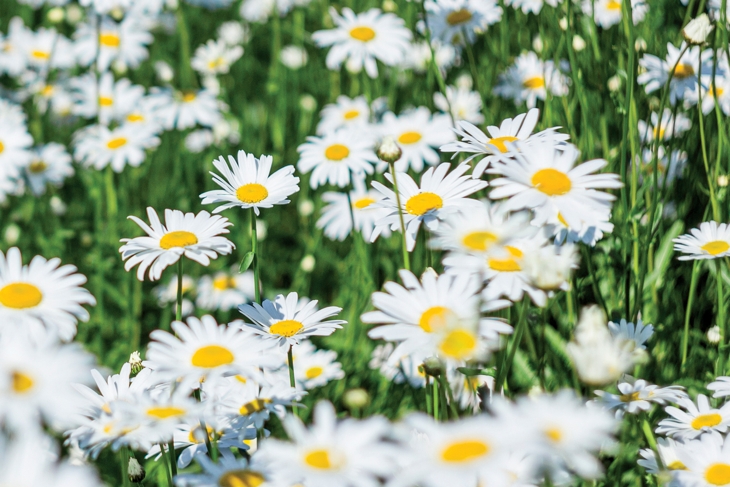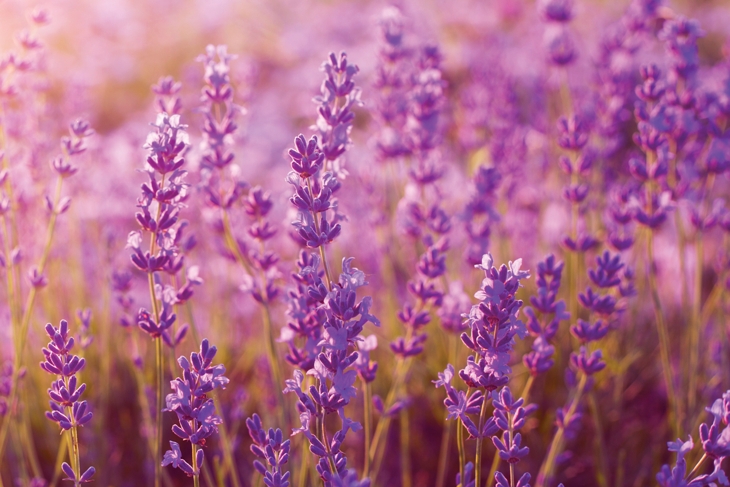Stressed? These Are the 10 Best Calming Herbs
These stress relievers have long-established roots in human history

Many of us are newly discovering the power of herbal medicines, but archeological excavations show that humans have been using plants for medicinal purposes for 60,000 years. Today, a growing number of people in developed countries who have full access to Western medicine are integrating the use of herbal medicine with Western medical practices. As a result, modern-day stress relievers have long-established roots in the mists of time. Let's get into our top 10 calming herbs.
Ashwagandha
Botanical name: Withania somnifera

What it is:
- used for more than 3,000 years as one of Ayurveda’s most prominent rasayanas or life extenders
- classified as an adaptogen (herbs that help our body manage stress)
What it looks like:
- small shrub with yellow flowers native to India and North Africa
- supplements come in extracts or powders from the roots or leaves
What it does:
- reduces physiological and biochemical indicators of stress
- corrects imbalances in the neuroendocrine and immune systems
- significantly reduces anxiety and stress
- regulates chemical signalling in the nervous system by blocking the stress pathway in the brain
Asian ginseng
Botanical name: Panax ginseng

What it is:
- used for centuries in traditional Chinese medicine
- classified as an adaptogen (herbs that help our body manage stress)
What it looks like:
- light-coloured, slow-growing, short plant with fleshy fork-shaped roots and oval-shaped green leaves
- supplements are found in extract, capsule, or powder form from its roots
What it does:
- supports cognitive function and/or reduces mental fatigue in cases of mental stress
- boosts mental alertness, low energy, and improves mental fatigue
- alleviates anxiety and depression caused by stress
- ameliorates inflammatory diseases caused by stress
Camomile
Botanical name: Matricaria chamomilla L.

What it is:
- herb used for thousands of years, known in ancient Egypt, Greece, and Rome
- dried flowers have been used in teas for centuries as remedy for several health conditions
What it looks like:
- daisy-like flowers of the Asteraceae plant family
- flowering tops of camomile used to make supplements, extracts, and teas
What it does:
- as an extract is used to improve sleep quality
- possibly reduces number of nighttime awakenings
- may moderately improve daytime functioning
- may help reduce anxiety and distress associated with menstrual period pain
Holy basil (tulsi)
Botanical name: Ocimum sanctum L.

What it is:
- Ayurvedic herb known as “the incomparable one,” revered as an “elixir of life”
- classified as an adaptogen (herbs that help our body manage stress)
What it looks like:
- small aromatic shrub with green or purple leaves and small purplish or red flowers
- used in cooking for its flavourful, pungent aroma and taste similar to other varieties of basil as well as in tablets, capsules, teas, and essential oil
What it does:
- may decrease symptoms of stress, including forgetfulness, exhaustion, and sleep problems
- reduces anxiety and associated stress
- may help reduce depression in those with anxiety
- helps protect against damage caused by physiological and metabolic stress
Lavender
Botanical name: Lavandula angustifolia

What it is:
- source of drugs as well as perfumes, soaps, flavourings, and crafts since before medieval times
- popular as an essential oil, which is distilled from its flower spikes
What it looks like:
- shrub with varieties ranging from 9 in (23 cm) to 3 ft (91 cm) tall with aromatic purple flowers
- available as a dried powder or gelatine capsules, but its essential oils are used primarily in aromatherapy
What it does:
- tincture of lavender may help improve symptoms of depression
- oral use of lavender oil supplement may help reduce anxiety
- possible improved symptoms (waking frequency/duration and anxiety) in PTSD and chronic fatigue
- can help treat insomnia and reduce anticipatory anxiety
Lemon balm
Botanical name: Melissa officinalis

What it is:
- a lemon-scented herb from the mint family used for more than 2,000 years
- contains chemicals that generate a sedative, calming effect; also may have antiviral effects as well as benefits for digestive health
What it looks like:
- small, perennial herb with similar appearance to others in the mint family
- available as tablets, capsules, tinctures, teas, essential oil, and salves (used for treating viral skin conditions like cold sores)
What it does:
- helps improve mood and cognitive performance
- can reduce some symptoms of anxiety, including nervousness and excitability
- may help increase calmness and alertness
- helps reduce sleep disturbances and improve sleep overall by alleviating anxiety
Passion flower
Botanical name: Passiflora incarnate

What it is:
- has been used since the 16th century as a mild sedative, relaxation, and calming medicine
- flowers as well as berries, roots, and leaves have been used as a traditional natural medicine
What it looks like:
- purple/blue and yellow vine flower found throughout South America and southern US
- available in single or combination formulations in capsules or tablets and in teas
What it does:
- has significant anxiety-calming effects
- by reducing anxiety, has also been shown to help increase concentration levels
- increases levels of the brain chemical, gamma-aminobutyric acid (GABA), which helps regulate mood
- helps modulate circadian rhythms to regulate sleep-wake cycles and aid in treating sleep disorders
Rhodiola
Botanical name: Rhodiola rosea

What it is:
- for centuries, used in Russia and Scandinavian countries for anxiety, fatigue, and depression
- adaptogenic herb with beneficial effects on adrenal function
What it looks like:
- perennial yellow flowering herb native to cold, mountainous regions of Europe and Asia
- rhodiola root extracts available in capsule or tablets
What it does:
- helps reduce stress-related fatigue
- helps increase concentration in those with burnout stress
- has been shown to improve mood in depressed adults
- may help improve attention and memory and enhance ability to cope with stress
St. John’s wort
Botanical name: Hypericum perforatum

What it is:
- used for centuries, originally harvested for the feast of St. John the Baptist
- widely prescribed for depression in Europe and sold as supplement tablets or capsules in North America
What it looks like:
- small flowering plant with yellow blossoms grows throughout North America
- found in teas, tablets, capsules, and as a topical treatment
What it does:
- affects brain’s uptake of serotonin, and other mood-controlling chemicals, dopamine and norepinephrine
- may be as effective as SSRIs, more effective than placebos in mild-to-moderate depression
- may help reverse anxiety and depression and improve response to stress
- could have anxiety-relieving effects due to its effects on gamma-aminobutyric acid (GABA) transmitters
Turmeric
Botanical name: Curcuma longa

What it is:
- comes from the root of Curcuma longa, a flowering plant of the ginger family
- spice widely used for more than 4,000 years throughout Asia in cooking, cosmetics, and medicinal remedies
What it looks like:
- spice is deep golden yellow and often referred to as Indian saffron
- supplements of its most active compound, curcumin, readily available in tablets or capsules
What it does:
- has shown promise in treating symptoms of major depression
- may help reverse harmful brain changes induced by chronic stress
- promotes resilience to stress and may help reduce anxiety
- seems to help reverse the effects of chronic stress on behaviour




